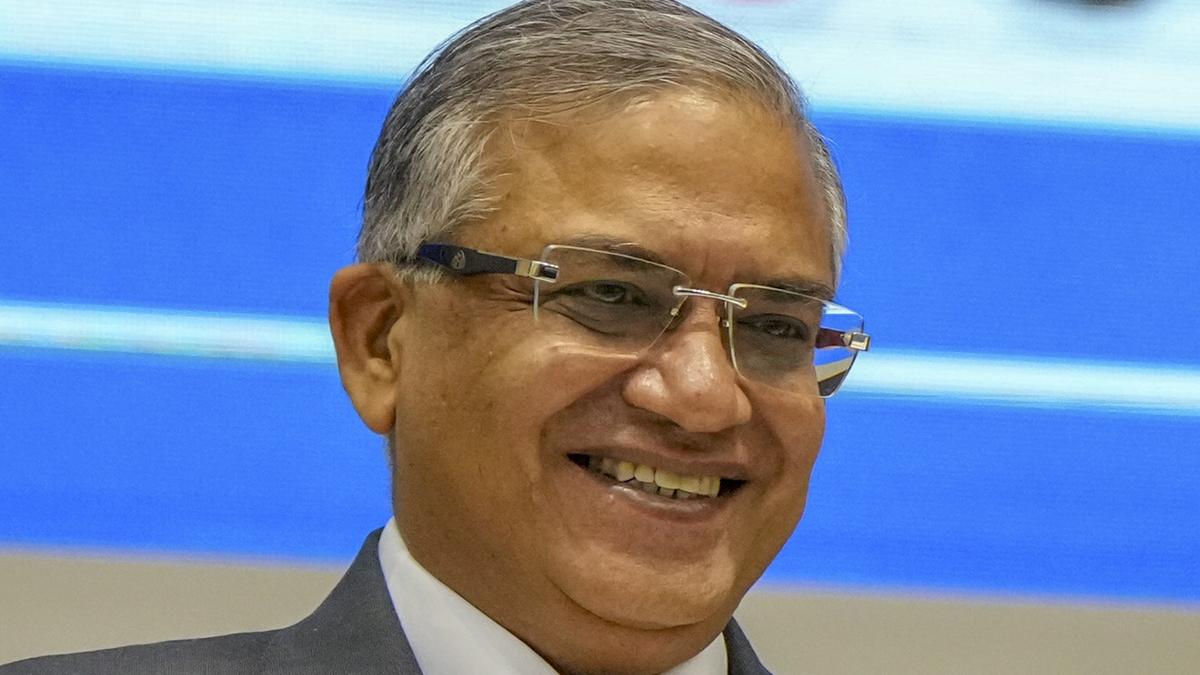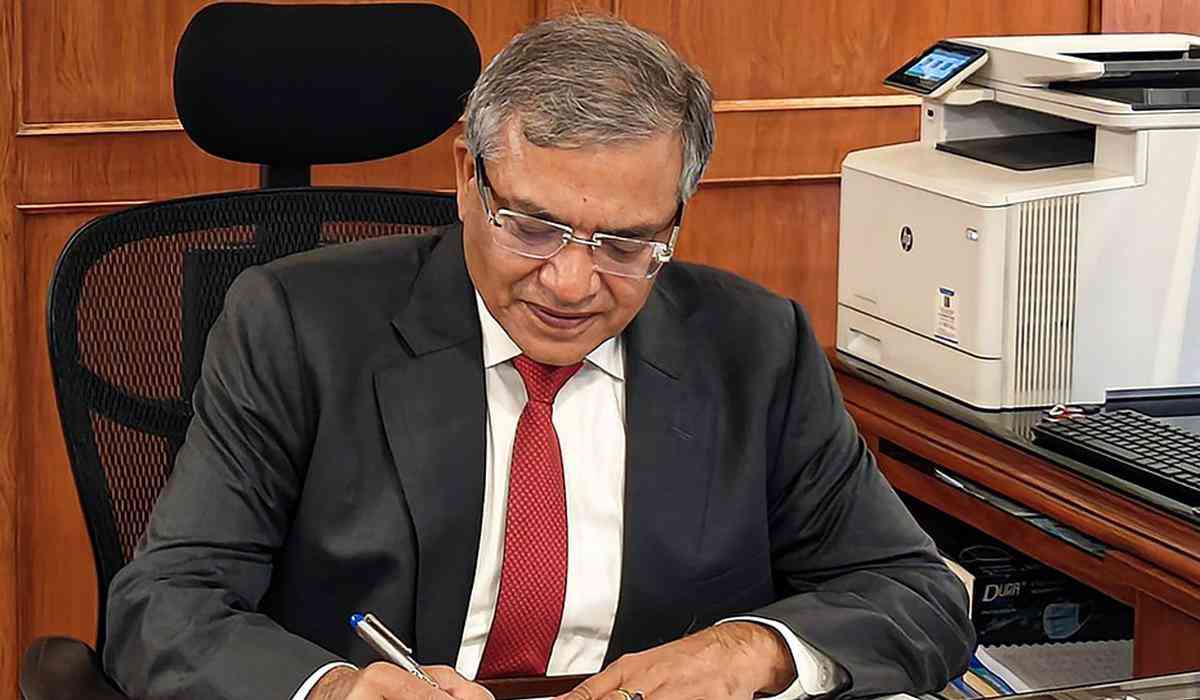On Monday, Gyanesh Kumar was appointed as India's Chief Election Commissioner (CEC), nearly a year after his induction as an Election Commissioner. Kumar's elevation follows a high-level panel meeting led by the Prime Minister, which selected him as the successor to Rajiv Kumar, who retired on Tuesday. However, the appointment comes amid controversy, with the opposition questioning the new selection process that gives the executive a greater role in appointing members of the Election Commission.

Who is Gyanesh Kumar?
A Distinguished Career in Bureaucracy
Gyanesh Kumar, a 1988-batch IAS officer from the Kerala cadre, has held key positions in both state and central administrations. He served as:
-
Secretary of the Cooperation Ministry (2023–2024)
-
Parliamentary Affairs Secretary
-
Additional Secretary in the Ministry of Home Affairs (MHA)
-
Joint Secretary in the Ministry of Defence
-
Resident Commissioner at Kerala House in Delhi (2012–2016)
Key Roles in Major Government Decisions
Kumar was instrumental in several high-profile national developments, including:
-
Jammu & Kashmir Reorganization (2019): As Additional Secretary in MHA, Kumar played a critical role in the abrogation of Article 370 and the bifurcation of Jammu & Kashmir into two Union Territories. He was closely involved in drafting the Jammu and Kashmir Reorganisation Bill.
-
Setting Up the Ram Janmabhoomi Teerth Kshetra Trust: Kumar contributed to the formation of the trust overseeing the construction of the Ram Temple in Ayodhya.
-
Multi-State Cooperative Societies (MSCS) (Amendment) Act, 2023: During his tenure as Cooperation Secretary, Kumar helped in passing this legislation to enhance transparency in the cooperative sector.
Tenure as Election Commissioner
Appointed as Election Commissioner on March 14, 2024, Kumar assumed office the following day. He was part of the Election Commission that conducted:
-
2024 Lok Sabha elections
-
First Assembly elections in the Union Territory of Jammu and Kashmir
-
Assembly elections in Haryana, Jharkhand, Maharashtra, and Delhi
As CEC, Kumar will oversee 20 Assembly elections, the Presidential and Vice-Presidential elections in 2027, and preparations for the 2029 Lok Sabha elections. His tenure will last until January 26, 2029.
_1739860576.jpg)
How Has the Election Commissioner Selection Process Changed?
Gyanesh Kumar is the first Chief Election Commissioner to be appointed under The Chief Election Commissioner and Other Election Commissioners Act, 2023. This law has significantly altered the process of appointing Election Commissioners.
The New Selection Process
Under the 2023 Act, Election Commissioners, including the CEC, are now appointed by the President based on the recommendation of a selection committee comprising:
-
The Prime Minister
-
A Union Cabinet Minister
-
The Leader of the Opposition (or the largest opposition party leader in Lok Sabha)
Additionally, a search committee, led by the Cabinet Secretary, prepares a list of potential candidates for the selection panel’s consideration.
How Were Election Commissioners Appointed Earlier?
Before the 2023 Act, the selection process was loosely defined under the Election Commission (Conditions of Service of Election Commissioners and Transaction of Business) Act, 1991. The appointment was made by the President on the advice of the Prime Minister and the Council of Ministers.
Key Changes in the New Act
1. Defined Salary and Service Conditions
-
Under the 1991 Act, Election Commissioners received salaries equivalent to Supreme Court judges.
-
The 2023 Act equates their salary and service conditions to those of a Union Cabinet Secretary.
2. Introduction of Eligibility Criteria
Unlike before, candidates must now fulfill specific criteria:
-
Be individuals of integrity.
-
Have knowledge and experience in managing and conducting elections.
-
Be serving or retired Secretaries (or equivalent) in the government.
What Remains Unchanged?
-
Tenure & Reappointment: The term remains at six years or until the age of 65, whichever is earlier, with no provision for reappointment.
-
Removal Process: The removal of the CEC remains the same as that of a Supreme Court judge. Other Election Commissioners can only be removed upon the recommendation of the CEC.
Why Was the Process Changed?
In the 2023 Anoop Baranwal vs Union of India case, the Supreme Court criticized the lack of a defined selection process for Election Commissioners, arguing that the Election Commission must remain independent of political influence.
The court recommended a selection committee comprising:
-
The Prime Minister
-
The Leader of Opposition
-
The Chief Justice of India (CJI)
However, the government later replaced the Chief Justice with a Union Minister, increasing executive influence over the selection process.
Legal Challenge to the New Law
After the Act was passed, multiple petitions were filed in the Supreme Court challenging its validity. Petitioners argued that the exclusion of the Chief Justice of India from the selection panel undermines the independence of the Election Commission.
While the Supreme Court did not stay the appointments under the new process, it has agreed to hear the matter. A final judgment is pending.
Gyanesh Kumar’s appointment as CEC marks a new chapter in India's election management, not just due to his extensive bureaucratic experience but also because it is the first appointment under the 2023 law. While his tenure will be closely watched for its handling of key elections, the ongoing legal challenge to the selection process will continue to shape discussions on electoral integrity and independence in India.
With inputs from agencies
Image Source: Multiple agencies
© Copyright 2024. All Rights Reserved Powered by Vygr Media.





















